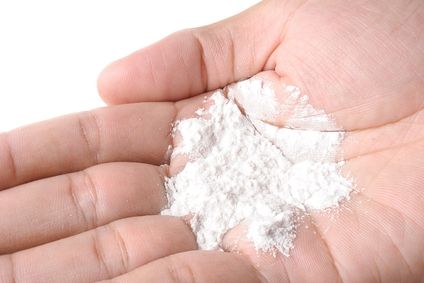Top Class Actions’s website and social media posts use affiliate links. If you make a purchase using such links, we may receive a commission, but it will not result in any additional charges to you. Please review our Affiliate Link Disclosure for more information.

How does talcum powder cause cancer?
Baby powder is a common product used in personal hygiene. Made up of magnesium, silicon, and oxygen, talc-based powders control sweat and prevent rashes.
When talc products, such as baby powder, are applied to the genital area, talc can travel through the vagina, uterus, and fallopian tubes to the ovaries. Talc may remain in the body for years, causing inflammation. Baby powder and talc-based products can create an environment conducive to grow cancer cells. Day-to-day use can compound the effect. At least one study confirmed that women who regularly use a talc-based powder for feminine hygiene may increase their risk of ovarian cancer by 41 percent. It is believed that 10,000 women develop ovarian cancer each year as a result of talcum powder use.
Medical studies: link between talc powder and ovarian cancer
Suspicions about talc powder and ovarian cancer go back decades. As early as 1961, researchers have demonstrated that particles similar to talc can translocate from the exterior genital area to the ovaries in women. And a 1968 study concluded that talc contained asbestos-like fibers.
In 1971, British researchers analyzed 13 ovarian tumors under a microscope and found talc particles ‘’deeply embedded” in 10.
In 1982, the journal Cancer published the first of numerous reports of a statistical link between genital talc use and ovarian cancer.
The most recent studies suggest that women who use talcum powder are 40 percent more likely to get ovarian cancer. Experts from Harvard Medical School in Boston studied more than 3,000 women and found using talc merely once a week raised the risk of ovarian cancer by 36 percent, rising to 41 percent for those applying powder daily.
Altogether, about 20 epidemiological studies have found increased rates of ovarian cancer risk for women using talc for hygiene purposes.
In response to such findings, the Cancer Prevention Coalition, an advocacy group, asked the U.S. Food and Drug Administration in 1994 to require warnings against talc use for genital hygiene. The agency said it lacked the evidence to require warnings, and Johnson & Johnson, one of the leading baby powder manufacturers, refused to issue them voluntarily.
Additionally, the International Agency for Research on Cancer has classified genital use of talc powder as a “possible carcinogen,” and the American Cancer Society has indicated women concerned about the talcum powder cancer risk may want to avoid these products.
Baby powder ovarian cancer lawsuits
Any person suffering from ovarian cancer after using talcum baby powder products like Shower to Shower or Johnson’s Baby Powder may have grounds to file a lawsuit against the product’s manufacturer. In August 2022, Johnson & Johnson announced that it would no longer sell talc-based baby powder across the world – expanding its previous decision to not sell talc powder in America. Johnson & Johnson maintains that this decision was not based on evidence that talc is unsafe and was instead a response to consumer purchasing trends. Regardless, this decision may have an impact on the thousands of lawsuits currently pending against Johnson & Johnson over talc powder safety concerns.
Although the manufacturer has stopped selling talc-based baby powder globally, consumers can still take legal action for damages sustained as a result of using talc-based products. A baby powder cancer lawsuit could entitle the victim or their family to compensation for medical expenses, lost wages, pain, suffering, or wrongful death.
Do YOU have a legal claim? Fill out the form on this page now for a free, immediate, and confidential case evaluation. The attorneys who work with Top Class Actions will contact you if you qualify to let you know if an individual lawsuit or class action lawsuit is best for you. [In general, baby powder cancer lawsuits are filed individually by each plaintiff and are not class actions.] Hurry — statutes of limitations may apply.
ATTORNEY ADVERTISING
Top Class Actions is a Proud Member of the American Bar Association
LEGAL INFORMATION IS NOT LEGAL ADVICE
Top Class Actions Legal Statement
©2008 – 2024 Top Class Actions® LLC
Various Trademarks held by their respective owners
This website is not intended for viewing or usage by European Union citizens.
Get Help – It’s Free
Join a Free Baby Powder Cancer Class Action Lawsuit Investigation
If you used Johnson’s Baby Powder, Shower to Shower, or another talcum powder product and were diagnosed with ovarian cancer, you may have a legal claim. Family members of loved ones who died of ovarian cancer can also join. Submit your information now for a free case evaluation.
An attorney will contact you if you qualify to discuss the details of your potential case at no charge to you.












